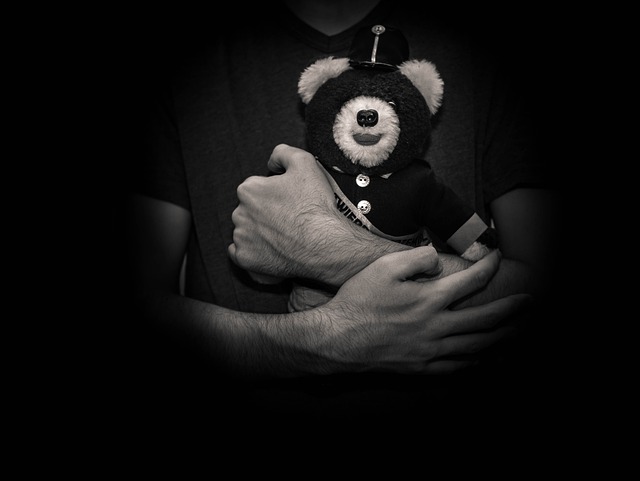“Insecure” reflects a lack of confidence or uncertainty, while “self-conscious” refers to awareness and concern about how one is perceived by others.
TL;DR Insecurity Vs. Self consciousness
Insecurity refers to a general lack of confidence or uncertainty about oneself or one’s abilities. It often stems from external factors such as past experiences, societal pressures, or negative feedback from others. Insecure individuals may constantly doubt themselves and seek validation from others.
Self-consciousness is more focused on how one perceives themselves in social situations. It involves being overly aware of one’s appearance, behavior, or actions in the presence of others. Self-conscious individuals may feel anxious or embarrassed about being judged by others.
What is Insecurity?

Insecurity is a deep-seated feeling of uncertainty and self-doubt that can plague individuals in various aspects of their lives. It often stems from a fear of failure, rejection, or not measuring up to societal expectations. When someone is insecure, they constantly second-guess themselves and seek external validation to feel worthy or accepted.
Insecurity manifests as a lack of confidence in one’s abilities, appearance, or intellect. It can create an overwhelming sense of inadequacy that infiltrates personal relationships and professional endeavors alike. Insecure individuals may find it difficult to trust others fully or believe in their own capabilities.
Insecurity often leads people down the path of comparison and self-criticism. They may fixate on perceived flaws or shortcomings while disregarding their unique strengths and accomplishments. This negative mindset only perpetuates the cycle of insecurity by reinforcing feelings of unworthiness.
Everyone experiences moments of insecurity at some point in their lives – it’s part of being human! However, chronic insecurity can have detrimental effects on mental health, relationships, and overall well-being if left unchecked.
Understanding the nature of insecurity is crucial for developing strategies to combat these negative thought patterns and foster self-confidence instead. By challenging irrational beliefs about oneself and practicing self-compassion, individuals can gradually break free from the grip of insecurity and embrace a more positive outlook on life.
What is Self-Consciousness?

Self-consciousness is a state of being acutely aware of oneself. It involves constantly monitoring one’s actions, appearance, and behavior in relation to others. People who are self-conscious tend to worry about how they are perceived by others and often feel anxious or uneasy in social situations.
In the realm of psychology, self-consciousness refers to an excessive preoccupation with oneself. This can manifest as a heightened sense of self-awareness or scrutiny towards one’s thoughts, feelings, and behaviors. It is important to note that self-consciousness can vary in intensity from person to person.
When someone is self-conscious, they may become overly concerned with their physical appearance or actions. They might constantly second-guess themselves or seek reassurance from others. This constant need for validation can be draining and impact one’s overall well-being.
Self-consciousness can also lead to social anxiety as individuals become hyperaware of their every move during interactions with others. This fear of judgment often stems from a lack of confidence and low self-esteem.
While insecurity relates more closely to doubts about one’s worthiness or capabilities, self-consciousness revolves around excessive focus on oneself in relation to others. Both concepts intertwine but understanding the nuances between them allows us insight into our own emotions and behaviors
Insecurity Vs. Self consciousness – Key differences
| Aspect | Insecurity | Self-Consciousness |
|---|---|---|
| Definition | A lack of confidence or feeling of inadequacy | An awareness of oneself and concern about how one is perceived by others |
| Focus | Centers on personal shortcomings or doubt | Focuses on appearance or behavior in social situations |
| Confidence | Often accompanied by low self-esteem | May or may not be associated with low self-esteem |
| Behavioral Impact | Can lead to avoidance, self-doubt, or withdrawal | May result in self-monitoring or anxiety in social settings |
| Emotional Component | Primarily tied to feelings of inadequacy | Includes a social or interpersonal dimension |
| Context | Not limited to social situations | Often manifests in social or public contexts |
Causes of Insecurity
- Low Self-Esteem: A negative self-image and a lack of self-worth can contribute to feeling insecure.
- Past Trauma: Experiences of abuse, bullying, or past failures can lead to insecurity.
- Comparison: Constantly comparing oneself to others can create feelings of inadequacy.
- Social Pressure: Societal beauty standards, peer pressure, or cultural norms can exacerbate insecurity.
- Perceived Rejection: Fear of rejection or abandonment by others can foster insecurity.
- Parental Influence: Childhood experiences and parenting styles can impact self-esteem.
- Negative Feedback: Receiving criticism or negative feedback can fuel insecurity.
- Fear of Failure: A fear of failing or not meeting expectations can lead to self-doubt.
- Body Image Issues: Concerns about physical appearance can contribute to insecurity.
- Lack of Support: A lack of emotional support or validation can result in feelings of insecurity.
- Unrealistic Expectations: Holding unrealistic standards for oneself can breed insecurity.
- Social Anxiety: Excessive worry about social interactions can make one feel self-conscious and insecure.
- Chronic Stress: Prolonged stress can erode self-confidence and exacerbate insecurity.
It’s important to recognize the causes of insecurity, as addressing these underlying issues is essential for building self-confidence and a positive self-image. Therapy, self-help strategies, and social support can be valuable in addressing insecurity and improving overall well-being.
Causes of Self-Consciousness
- Social Evaluation: Fear of being negatively judged or evaluated by others in social situations.
- Appearance Concerns: Worry about physical appearance, body image, or attire in public settings.
- Performance Anxiety: Apprehension about performing well or making mistakes in front of others.
- Past Experiences: Negative past experiences, embarrassment, or ridicule can contribute to self-consciousness.
- Social Pressure: Social norms, expectations, or peer pressure can heighten self-awareness.
- Insecurity: Feelings of low self-esteem and inadequacy can make one more self-conscious.
- Public Speaking: Fear of speaking in public or giving presentations can lead to self-consciousness.
- Introversion: Introverted individuals may feel self-conscious in social settings due to their natural disposition.
- Attention: Feeling uncomfortable when being the center of attention.
- Perceived Flaws: Concerns about personal flaws, whether real or perceived.
- Imposter Syndrome: A feeling of not deserving one’s achievements, leading to self-consciousness in professional settings.
- Social Anxiety: Anxiety about social interactions can heighten self-consciousness.
Understanding the causes of self-consciousness can help individuals address and manage these feelings, whether through self-help strategies or seeking professional support, such as therapy or counseling.
Image Credits
Featured Image By – veresadamm from Pixabay
Image 1 By – Bernard on Unsplash
Image 2 By – Michaela, at home in Germany • Thank you very much for a like from Pixabay








